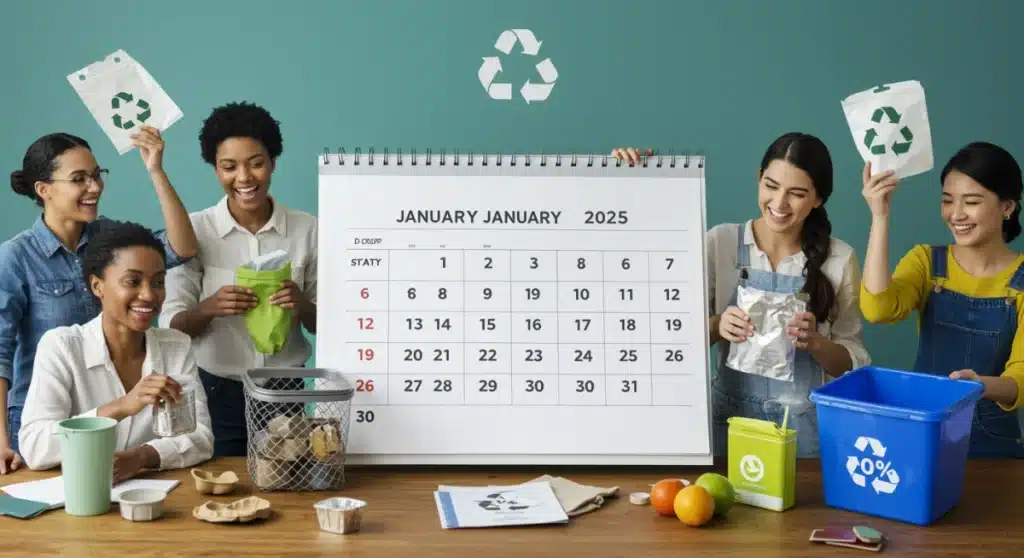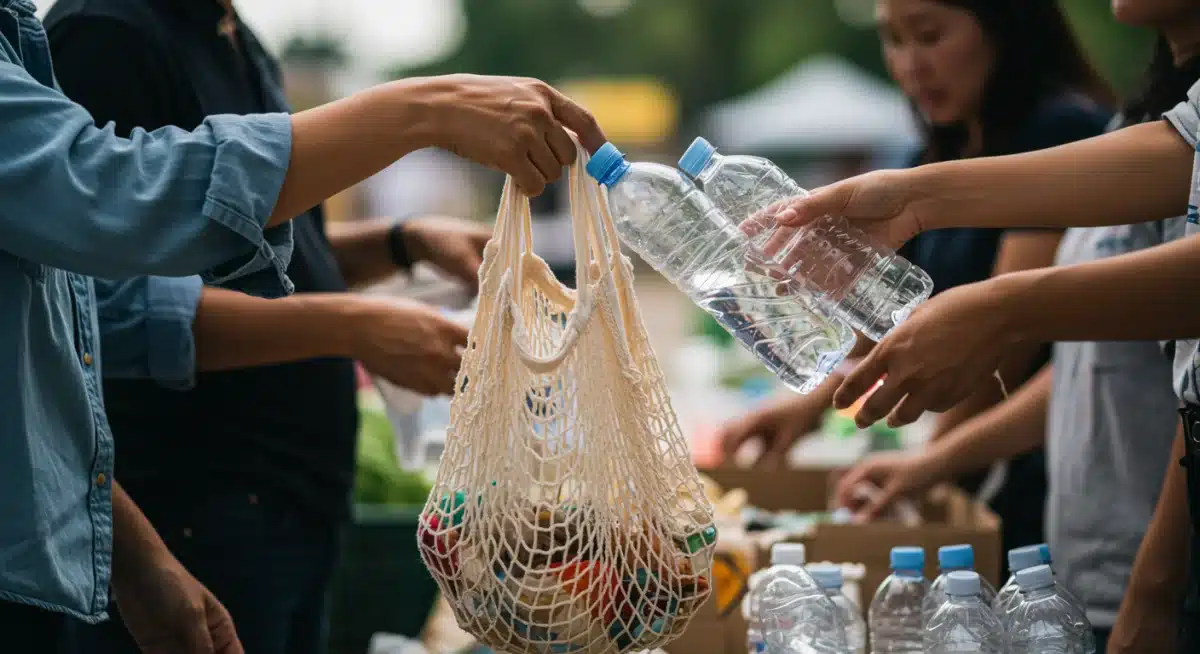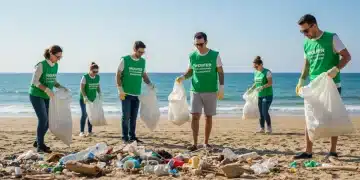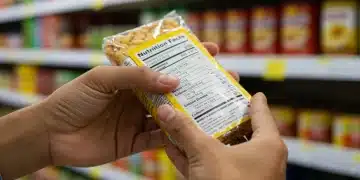Time-Sensitive: Secure Your Spot in the January 2025 National Plastic-Free Challenge

Enrollment is now open for the January 2025 National Plastic-Free Challenge, urging participants nationwide to commit to a 20% reduction in plastic waste. This initiative provides resources and community support to foster sustainable habits.
The opportunity to join the Time-Sensitive: Secure Your Spot in the January 2025 National Plastic-Free Challenge – Reduce Waste by 20% is here, offering a crucial chance to make a tangible difference in environmental sustainability. This nationwide initiative calls on individuals, families, and businesses to actively participate in reducing their plastic footprint by a significant 20%.
Enrollment Deadline Nears for January 2025 Challenge
The window for individuals and organizations to register for the January 2025 National Plastic-Free Challenge is rapidly closing. This urgent call to action emphasizes the limited time remaining to secure a place in this impactful environmental movement. Participants are encouraged to act swiftly to ensure their involvement in what is projected to be the largest national effort to date aimed at minimizing plastic waste.
As of today, registrations have surged, reflecting a growing public awareness and commitment to sustainability. The challenge, set to commence on January 1, 2025, aims to equip participants with practical strategies and resources to achieve a 20% reduction in their personal and household plastic consumption over the course of the month.
Why Early Registration Matters
- Access to Resources: Early registrants receive priority access to exclusive guides, webinars, and workshops designed to facilitate plastic reduction.
- Community Engagement: Securing a spot early allows for immediate integration into online forums and local groups, fostering a supportive environment.
- Planning Advantage: Participants gain more time to prepare their households or businesses for the challenge, identifying current plastic usage and potential alternatives.
Understanding the 20% Waste Reduction Goal
The ambitious target of a 20% reduction in plastic waste is at the core of the January 2025 National Plastic-Free Challenge. This goal is not merely symbolic; it represents a measurable and achievable objective for participants across various lifestyles and consumption patterns. The organizers have developed a comprehensive framework to help individuals track their progress and identify key areas for improvement.
According to environmental experts advising the challenge, a 20% reduction, when aggregated across thousands of participants, will lead to a substantial decrease in plastic pollution entering landfills and oceans. This collective impact underscores the power of individual actions when united under a common purpose.
Measuring Your Plastic Footprint
Participants will be provided with tools to assess their baseline plastic consumption before the challenge begins. This includes simple methods for categorizing and quantifying plastic items used daily, from packaging to personal care products. The goal is to make the tracking process user-friendly and insightful, empowering individuals to understand their personal impact.
The emphasis is on practical, everyday changes rather than radical lifestyle overhauls. Small, consistent efforts, such as choosing unpackaged produce or opting for reusable containers, are expected to contribute significantly to the 20% target.
Key Strategies for a Plastic-Free Lifestyle
Achieving a 20% reduction in plastic waste involves adopting a range of strategies that can be integrated into daily routines. The January 2025 National Plastic-Free Challenge provides participants with a robust toolkit of actionable tips and alternative solutions. These strategies address various aspects of consumption, from grocery shopping to personal care.
The focus is on practical, accessible changes that do not require significant financial investment, ensuring that the challenge is inclusive and achievable for a broad audience. Educational materials will highlight the benefits of each strategy, both for the environment and for personal well-being.

Practical Tips for Reducing Plastic
- Refuse Single-Use: Decline plastic bags, straws, and disposable coffee cups by bringing your own reusables.
- Shop Smart: Prioritize bulk items, products with minimal or no packaging, and items in glass or metal containers.
- DIY Solutions: Consider making your own cleaning products, personal care items, or snacks to avoid plastic packaging.
- Support Local: Frequent farmers’ markets and local stores that often offer unpackaged goods and encourage reusable containers.
Community Support and Resources
A cornerstone of the January 2025 National Plastic-Free Challenge is the robust community support system designed to keep participants motivated and informed. Recognizing that transitioning to a plastic-free lifestyle can be challenging, organizers have established multiple platforms for interaction, resource sharing, and encouragement.
Online forums and social media groups will serve as hubs for participants to exchange ideas, ask questions, and celebrate successes. Local chapters are also being established in various cities, allowing for in-person meetups, workshops, and communal activities focused on plastic reduction.
Educational Workshops and Webinars
Throughout the challenge, a series of expert-led workshops and webinars will be available to all registrants. These sessions will cover diverse topics, including advanced recycling techniques, composting organic waste, identifying hidden plastics, and advocating for broader systemic change. The aim is to empower participants with knowledge that extends beyond the immediate challenge.
Guest speakers, including environmental scientists, zero-waste influencers, and policy makers, will share insights and inspire action. These educational opportunities are vital for sustaining long-term commitment to plastic reduction beyond the January 2025 timeframe.
The Broader Impact of Plastic Reduction Efforts
The January 2025 National Plastic-Free Challenge is not just about individual actions; it’s about fostering a collective movement that influences broader societal change. The ripple effect of thousands of participants reducing their plastic consumption by 20% is expected to send a powerful message to manufacturers, retailers, and policymakers.
Increased demand for plastic-free alternatives can drive innovation in sustainable manufacturing and product design. Furthermore, the visible success of such a large-scale challenge can inspire legislative action and corporate responsibility initiatives aimed at tackling plastic pollution at its source.
Economic and Environmental Benefits
- Reduced Landfill Waste: Less plastic means less waste accumulating in landfills, conserving space and reducing methane emissions.
- Ocean Health: A direct reduction in plastic consumption lessens the amount of plastic entering oceans, protecting marine ecosystems and wildlife.
- Resource Conservation: Less plastic production conserves fossil fuels and other natural resources used in manufacturing.
- Innovation Driver: Increased consumer demand for plastic-free options stimulates the development of eco-friendly products and business models.
Beyond January: Sustaining Plastic-Free Habits
While the January 2025 National Plastic-Free Challenge is a month-long intensive effort, its ultimate goal is to instill lasting habits that extend far beyond the initial period. The challenge is designed as a springboard for a more sustainable lifestyle, providing the foundational knowledge and practices necessary for continued plastic reduction.
Participants will receive guidance on how to maintain their 20% reduction, or even exceed it, in the months and years following the challenge. This includes strategies for long-term planning, adapting to new plastic-free innovations, and staying engaged with the broader environmental community.
Long-Term Engagement and Advocacy
The organizers plan to offer ongoing support through newsletters, advanced workshops, and advocacy opportunities. This includes encouraging participants to become local champions, sharing their experiences and inspiring others in their communities to adopt plastic-free practices. The challenge aims to create a network of informed and active environmental stewards.
By fostering a sustained commitment, the January 2025 Challenge seeks to contribute to a cultural shift where plastic-free living becomes the norm rather than the exception. This long-term vision is crucial for addressing the global plastic crisis effectively and creating a healthier planet.
| Key Point | Brief Description |
|---|---|
| Enrollment Deadline | Time-sensitive registration for the January 2025 National Plastic-Free Challenge is nearing its close. |
| 20% Reduction Goal | Participants aim to reduce personal and household plastic waste by a measurable 20%. |
| Support & Resources | The challenge provides extensive community support, workshops, and practical tips. |
| Long-Term Impact | Focus on sustaining plastic-free habits beyond January for lasting environmental change. |
Frequently Asked Questions About the Challenge
It’s a nationwide initiative encouraging individuals and families to reduce their plastic waste by 20% throughout January 2025. The challenge provides resources, community support, and practical strategies to help participants adopt more sustainable, plastic-free habits.
Registration is time-sensitive and can be completed through the official challenge website. Early enrollment is highly recommended to gain access to preparatory materials, workshops, and community forums, ensuring a well-prepared start to the plastic-free journey.
Participants receive access to a comprehensive toolkit including guides, webinars, and expert-led workshops. Online forums and local support groups also provide a platform for sharing tips, asking questions, and staying motivated throughout the challenge duration.
Yes, the challenge is designed to be inclusive and accessible for all levels, from beginners to those already practicing zero-waste. Strategies focus on practical, everyday changes, and the supportive community ensures that everyone can find success in reducing their plastic footprint.
The goal is to foster long-term sustainable habits. Participants will receive ongoing support and resources to continue their plastic reduction efforts beyond January. The initiative aims to create lasting behavioral changes and a sustained commitment to environmental stewardship.
What Happens Next
As the enrollment window for the January 2025 National Plastic-Free Challenge rapidly closes, the focus shifts to the preparatory phase. Registered participants will soon begin receiving their initial toolkits and access credentials for online platforms. This upcoming period will be critical for individuals to assess their current plastic usage and strategize their approach to achieving the 20% reduction goal. Watch for further announcements regarding pre-challenge webinars and local meetup schedules, which will provide essential guidance and foster a sense of collective purpose before the official start on January 1, 2025.





